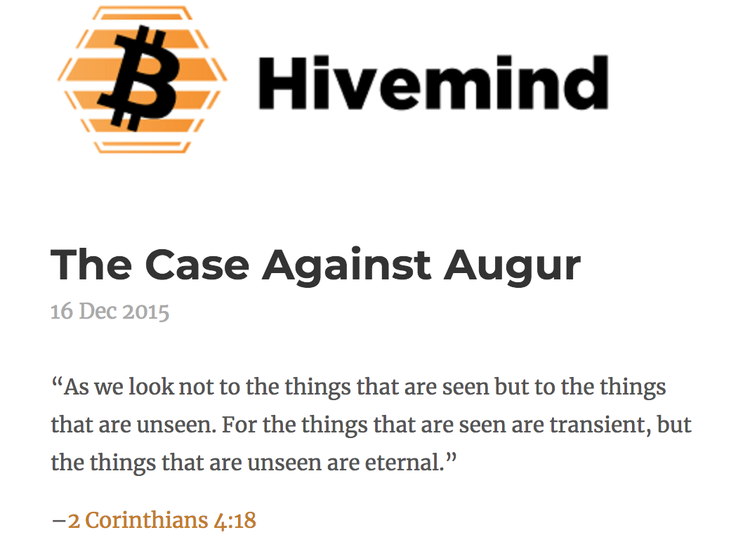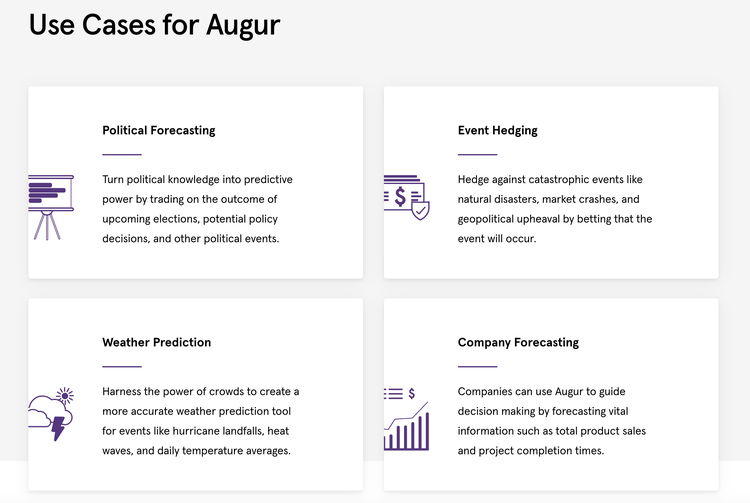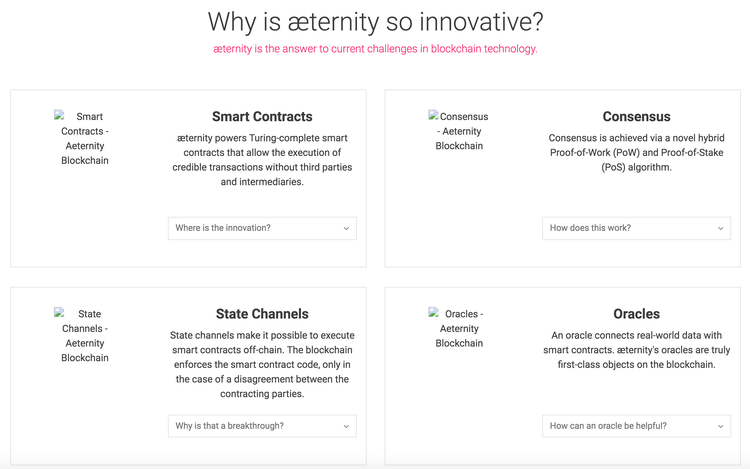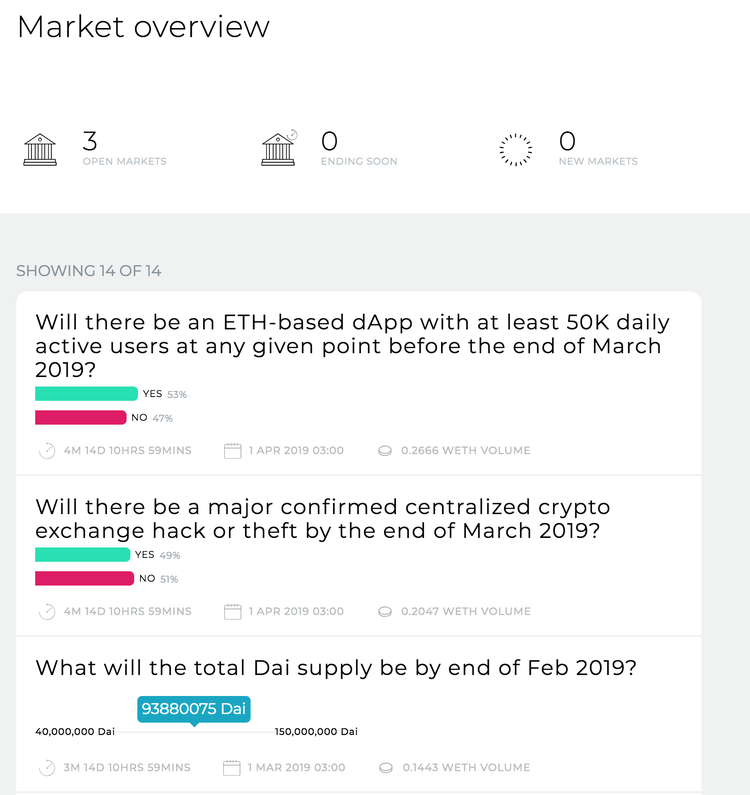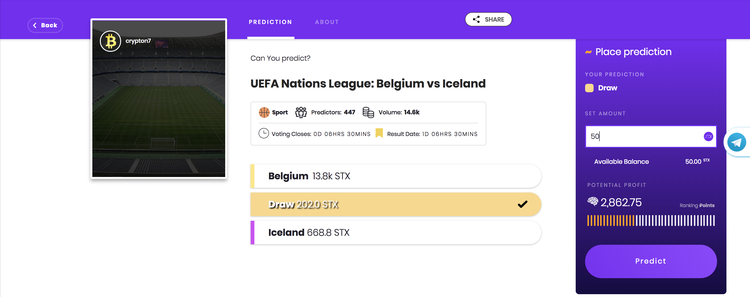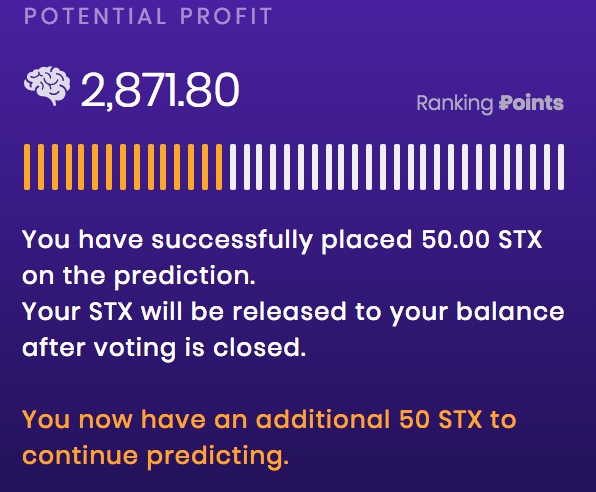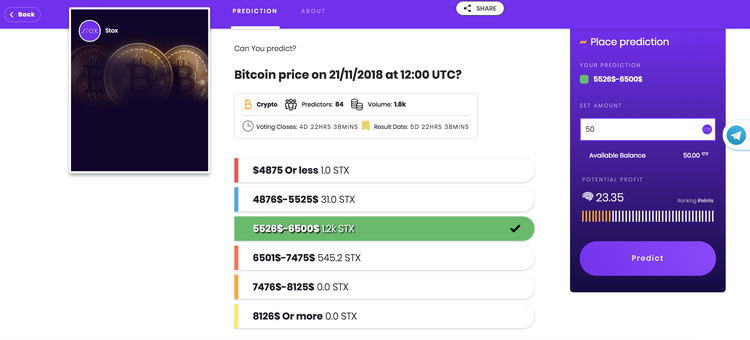Hey everyone, congratulations on bitcoin and the rest of the market hitting their annual lows! Who would have predicted this?
In the cryptocurrency world, there are places where you could actually predict stuff like that – they’re called prediction markets. Or rather, as these platforms label themselves – decentralized blockchain-powered peer-to-peer oracle & prediction marketplace, or some incomprehensible thing along those lines. The fact of the matter is it doesn’t really matter how you call a gambling site, it’s still a gambling site.
Before I delve into this relatively new market niche I want to explain exactly why I’m doing this. Last week, I found out about a coin called Amoveo. It’s not on any major exchanges, in fact, it only trades on two very obscure ones. It’s also not even listed on Сoinmarketcap. I guess not many people know about it. And yet, 3 days ago, when it was at its all-time high it was worth $317.25. After the recent market collapse, the figure isn’t that impressive, but still better than ether:
It’s been around for less than a year and the project aims to be a prediction market, as well as ‘a blockchain for enforcement of investment and insurance contracts’, whatever that means. What’s really interesting about this is that the project is being developed almost single-handedly by Zack Hess. And when I say single-handedly I really mean it – it’s just him and no-one else, which probably explains why it’s still under the radar.
Zack Hess is apparently a notable figure when it comes to prediction markets. Back in the day, he used to work for Augur but then quit. I’ve read up on it and it turns out he quit mostly because Augur is a bunch of d*cks according to him. Apparently, they underpaid him to the point that several people in the company were making 2.5 times more money, while Zack was doing all the work. On top of that, they ‘made him’ sign an agreement according to which he wasn’t allowed to discuss the software code with non-Augur employees. And not just while he worked there, he couldn't discuss it for 2 years after he left.
By the way, I found that out from a blog post on Bitcoin Hivemind by Paul Sztorc. Hivemind in itself is an Oracle protocol created ‘so that bitcoin users can speculate in Prediction Markets’. The infamous Roger Ver even said that ‘Hivemind may be the most important invention since bitcoin itself’. Well, I don’t know about that, but some people working there sure are very salty. This Paul guy even opened his ‘The Case Against Augur’ blogpost with a bible quote. Try fending that off.
All jokes aside, if Paul’s article was an extremely long way of saying that Augur guys are just a-holes, I would actually agree with him. For one thing, they expect you to download an entire ethereum blockchain to use their prediction market. I tried testing it a few weeks back and I just gave up after about four hours. How can they really expect anyone to use their platform if they make people wait for hours for everything to download? They probably never heard of the ‘user-friendliness’ concept. Were they not capable of building something that works better and maybe just a little more efficient? Also, the way they’re trying to legitimize their platform and pretend it’s something other than gambling is just funny:
Moving on with Zack’s story. Quite obviously, he didn’t stay with Augur and started working with another prediction market platform called Aeternity. Oh, no, excuse me, it’s actually æternity. Yeah. He didn’t stay with them either and left because of two reasons: not enough recognition and not being financed enough. Again, apparently, he coded everything there and left with an agreement that they are not to use his code. Which is kind of weird, I’ve got to say, because he rebelled when Augur tried to force him to go against the principles of an open source code. And now he has no problem with doing exactly the same himself? I don’t get it.
Still, I don’t blame him for leaving Aeternity, whatever the reasons. It’s just another project promising a lot, but lacking an actual product of any sorts. Also, don’t you just love it when projects use the word ‘innovative’ and can’t get pictures on their website to display correctly?
I actually kind of like what Zack is doing with his own project. He’s seen the insides of two other attempts at creating a predictions market with all the flaws and shortcoming and just went ahead and did a thing of his own. Also, it’s actually the first time I’ve seen a blockchain platform not shoving their vision down their users’ throats, but aiming to cater to exactly what they want.
He is planning to first gather a community, then research it and then rebrand and rename Amoveo so that it does exactly what the community needs it to do. I’ve read in the ‘Whitepaper’ section of Amoveo’s website literally three days ago. The website seems to be non-existent right now and it redirects to the project’s GitHub. Make of that what you will.
So, the current situation in the prediction market space is this: there’s Augur that is virtually unusable, there’s Aeternity which has no product, there’s Amoveo which is a brainchild of a guy who worked for both aforementioned companies, quit, and also does not have a product, and there’s Hivemind, which isn’t actually a prediction market, but just an oracle. Are there any prediction markets that actually work?
Well, Gnosis is another one I’ve heard of several times. I went on their website and I legitimately thought that they have no product, because I couldn’t find anything. Turns out I needed to look in the ‘timeline’ section to find a beta version of their trading interface with just 3 open markets that have literally no volume. The thing is dead.
According to the same timeline, they have been working on a prediction market since 2014. It’s been almost five years and still just a dead beta version? Let’s move on.
I’ve looked through numerous ‘5 best prediction marketplaces articles’ which primarily list prediction markets with no product and Augur. A couple of them mentioned Stox.
Rather surprisingly, I can actually see myself coming back here and there’s a couple of reasons why. First of all, it’s literally just a dApp in a form of a website. Augur, take note! Second of all, when I logged in they gave me 50 of their STX tokens to play around with, much like the traditional betting platforms do to lure people in. Of course, I can’t withdraw them, but that’s a great tactic.
I don’t really know how the traditional bookies set up their odds, but it seems that on Stox the more people are betting on one particular outcome, the less profit you’ll get if you bet on it and it comes through. Here’s an example of a bet, errr, excuse me, a PREDICTION I’ve made:
As you can see, there are actually people on this thing. Almost 500 predictors just for this particular game. Another thing you can clearly see is that I’m predicting a draw because Iceland is amazing and Belgian players might be quite fatigued as most of them have been playing intensely in Europe’s top leagues. My potential profit is 2,865.75. Just to compare, if I’d predicted Belgium to win, my potential profit would’ve been just 3.77. Predicting Iceland to win would’ve potentially returned me a profit of 791.83 STX.
I placed my prediction and this happened:
Naturally, I went and made the most obvious prediction I could possibly think of:
To be honest, I really hope none of those bets will pay off, because I literally have no self-control when it comes to things like this. Overall, I have to say that I’m deeply disappointed with the state of the prediction market space. Everything just seems dodgy and scammy, everyone’s going at each other, writing cases against one another, one guy just said ‘f*ck it I’m gonna build my own thing’. There’s just so much drama, incompetence and empty promises instead of an actual working product.
The worst thing about these platforms to me is that they use blockchain and peer-to-peer communication to create a loophole in regulations and effectively run an illegal betting site. I mean, we have a lot of legitimate bookies out there and there is no need for the blockchain technology to be in that industry.




